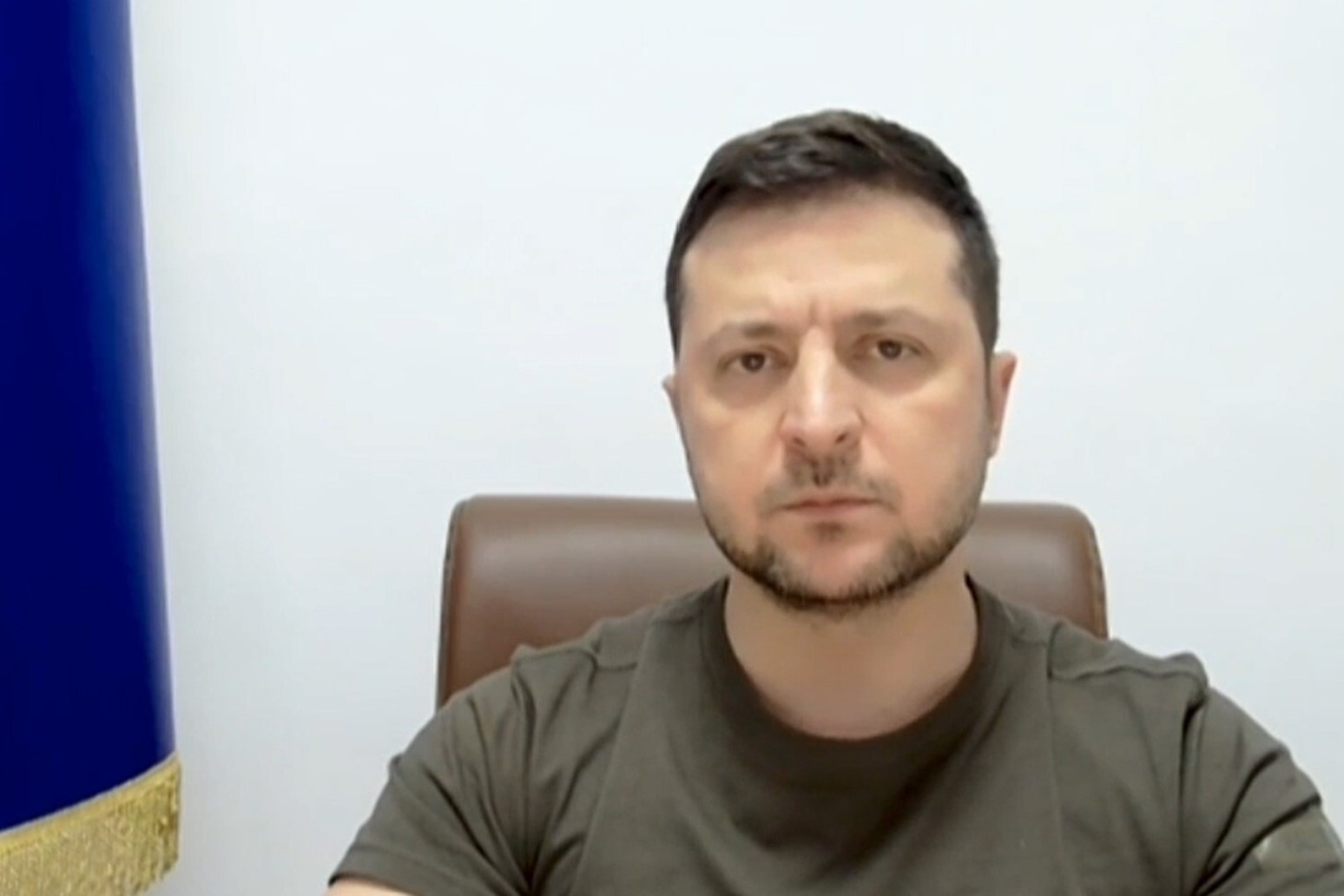
PM says ‘no way’ Ukraine joining Nato soon as Zelensky sees hope in peace talks
Boris Johnson said there is “no way Ukraine is going to join Nato anytime soon” as Ukraine’s leader said peace talks with Russia had taken a “realistic” turn.
The Prime Minister, who is visiting the Gulf as he tries to wean the West off Russian energy, said he understood the “reality of the position” expressed by Ukrainian President Volodymyr Zelensky during an address to London, in which he appeared to concede over the prospects of joining the alliance.
The Kyiv war leader, in a video call to Mr Johnson and representatives from Baltic and northern European countries gathered on Tuesday, expressed his frustration that Ukraine had not been allowed to join Nato, but said: “This is the truth and we have simply to accept it as it is.”
Mr Johnson, speaking to broadcasters at the Emirates Palace hotel in Abu Dhabi on Wednesday, said: “I talked to Volodymyr (Zelensky) again yesterday and of course I understand what he is saying about Nato and the reality of the position.
“And everybody has always said – and we’ve made it clear to (Russian President Vladimir) Putin – that there is no way Ukraine is going to join Nato any time soon.”
But Mr Johnson said decisions about the future of the country had to “be for the Ukrainian people” and their “elected leader” to make, as he vowed Britain would continue to “back” Mr Zelensky.
“And the most important thing is that Putin’s aggression, his absolutely barbaric attacks on Ukraine should stop and they should not be seen to have succeeded, and they won’t succeed,” the Prime Minister added.
Mr Zelensky, since addressing the London summit, has suggested peace talks between the Ukrainian and Russian delegations had started to produce hope of a ceasefire.
In his nightly video address to the nation early on Wednesday, the president said Russia’s demands were becoming “more realistic”.
The two sides were expected to speak again on Wednesday.
Foreign Secretary Liz Truss appeared less optimistic in her assessment of the conflict, telling Sky News she feared “we are not near the end, at this stage”.
She also told BBC Radio 4’s Today programme that Ukrainians are negotiating for peace with a “gun against their heads”.
Ms Truss added: “I am very, very concerned that Putin is playing a smoke-and-mirrors game of trying to claim that he is seeking peace while, at the same time, continuing with this appalling war he instigated and is not making the progress he thought he would.”
It comes as the Foreign Secretary urged allies to step up their measures against Moscow, as she called for those in opposition to the war to sanction Russia.
The Cabinet minister announced more than 370 Russian and Belarussian sanctions on Tuesday, bringing the total number of individuals, entities, and subsidiaries put under strict measures at more than 1,000 since the invasion of Ukraine began.
Speaking to Sky News, Ms Truss argued that sanctions from the UK and other Western nations were having a “debilitating effect on the Russian economy”, with more to come from Britain.
Following the introduction of new powers lowering the threshold for applying sanctions, she said “we’ve got more individuals on our list”, as well as companies to target.
Pressing for allies to go further, the Foreign Secretary noted that the European Union had sanctioned three Russian banks – compared with the 10 targeted by the UK and US – adding that she would like to see Brussels “sanction even more” financial institutions.
She also argued that more sanctions could come “collectively” from the 141 countries that voted against Russia at the UN General Assembly.
The UK is working with allies “in the G7 and beyond”, Ms Truss said, to ensure Russian oligarchs have “nowhere where it is legitimate for them to live their lifestyles, have their yachts or have their planes”.
UK officials said on Tuesday that the public could expect more family members of oligarchs to face sanctions in the next wave of announcements.
Meanwhile, the Ministry of Defence (MoD) said Ukraine was continuing to have success in “stalling Russia’s advance”, with the Kremlin’s forces also “struggling to overcome the challenges posed by Ukraine’s terrain”.
There has also been a “failure to gain control of the air”, the department said, in its latest defence intelligence update.
“The tactics of the Ukrainian armed forces have adeptly exploited Russia’s lack of manoeuvre, frustrating the Russian advance and inflicting heavy losses on the invading forces,” the MoD tweeted.
Defence Secretary Ben Wallace, speaking during his visit to Nato’s headquarters in Brussels, said weapons from Western nations are still reaching Ukrainian forces on the front line.
He said members of the alliance need to “see what more we can do” to support Ukraine’s defence against Russia’s incursion.
Mr Wallace’s comments came after Ms Truss said it was becoming “difficult” to get humanitarian relief into “besieged” Ukrainian cities.
Around 20,000 people have been able to flee the southern city of Mariupol, but Mr Zelensky said Russians refused to allow aid into the heavily-bombarded port.
Before dawn, large explosions thundered across Kyiv from what Ukrainian authorities said were artillery strikes, as Russia’s bombardment of the capital appeared to become more systematic and edged closer to the city centre.
Elsewhere, Home Office minister Kevin Foster told MPs on the Home Affairs Committee 5,500 visas have now been granted under the Ukraine Family Scheme and 20,000 applications have been submitted.
Expressions of interest in taking in a Ukrainian refugee who does not have family ties to Britain, via the Homes for Ukraine sponsorship scheme, reached 138,000 on Wednesday, Downing Street confirmed.
Published: by Radio NewsHub